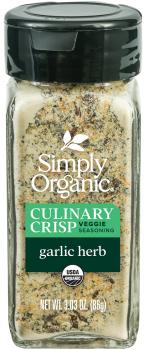As my college professor closed the door to the classroom, I felt my heart pound. The timed exam was about to begin, and I couldn’t leave the room until I finished. This may not seem like a problem, but it was very stressful for me.
Living with Chronic Illness & Autoimmune Disease
Despite my exceptional academic record, I suffered from severe abdominal pain; just sitting on the hard classroom chair felt like needles stabbing my insides. Distracted by the pain while trying to recall my study materials, I breathed a sigh of relief when I finished my exam. Cradling my stomach, I carefully walked to the front of the room trying to not provoke another spasm attack. I didn’t want my peers to notice I was hurting. Embarrassed, I left the room and headed to the student health center where I could lie down between classes.
“You’re too young to be going through this,” the nurse said. She was referring to my being 20. But I wasn’t too young; older adults are not alone in suffering from chronic illness. In a report published by the Children’s Health Defense Team, over half of millennials surveyed reported having been diagnosed with at least one chronic illness.
Prevalence of Autoimmune Disease
Over 50 million Americans live with autoimmune disease. Experts call these staggering numbers an epidemic. Crohn’s disease, an autoimmune disease affecting the gut, is one of the top four physical conditions impacting millennials. I have Crohn’s disease, also known as inflammatory bowel disease, and have lived with chronic illness for as long as I can remember. Crohn’s disease joins over 100 additional diseases classified as autoimmune according to the American Autoimmune Related Diseases Association, Inc. Others include Type 1 diabetes, rheumatoid arthritis, lupus, multiple sclerosis, endometriosis, and Sjögren’s syndrome.
What Is Autoimmune Disease?
Our immune system is designed to protect us. When we get the flu, our immune system mounts a response to fight the germ causing the illness. A properly functioning immune system recognizes the harmful invader as separate from the self. However, in the case of autoimmunity, something triggers the immune system to attack its own body. The immune system is unable to recognize self from non-self.
This results in a cascade of bodily responses causing pain, fatigue, malnutrition, and brain fog. These symptoms can go into periods of remission during which a person feels better, followed by relapses.
Autoimmune Disease and Inflammation
While each autoimmune disease has its own symptoms, there is one thing they all share in common: inflammation.
Most of us have been bitten by an insect. When the insect, a foreign invader, attacks our body, our immune system sends its team to the injury site to defend the body. We see evidence of this response as redness and inflammation, and we feel pain. In autoimmune diseases, this inflammatory process is in overdrive. Unlike an insect bite, the redness and swelling may not be obvious. Many people describe autoimmune disease as “invisible illness” because an affected person can look healthy on the outside, but have significant discomfort internally.
The Connection Between Autoimmunity, Stress, & Trauma
The 1990s groundbreaking Adverse Childhood Experiences study—ACEs—led by Vincent Felitti, MD, showed the connection between trauma and stress in childhood and poor health outcomes in adulthood. Decades later, studies continue to confirm this relationship and also show how stress is a factor in autoimmune disease. Stress hormones increase inflammation, which is at the core of autoimmune disease, so reducing stress is beneficial.
We all experience day-to-day stressors such as meeting deadlines, having a toilet overflow, or a delayed flight. However, chronic stress can feed an inflammatory cycle in the body and weaken the immune system. Trauma causes changes to our brain chemistry and nervous system.
For example, children who witness domestic violence or are victims of abuse survive in a stress cycle (also called fight or flight). Even when they are safe, their bodies don’t know the difference. The stress hormones continue pumping as though the traumatic event is reoccurring; this increases inflammation and susceptibility to infection. This same cycle is applicable to other traumatic events such as a car accident, hostile work environment, hate crime, death, or environmental disaster.
Unfortunately, conventional medical models often continue to separate physical from emotional. Since trauma and stress are connected to our physical health, working with a licensed mental health therapist, somatic therapies, building a support system, mind/body approaches, and finding joy are all ways to lessen the impact of stress on the immune system.
Individualized Treatments
Find an Integrative Physician or Healer
It is possible to live a quality life with autoimmune disease. For many years I was told I would get progressively worse because Crohn’s disease is “incurable.” This negative outlook did not serve me well because it made me feel at the mercy of the disease process. Recognizing there are many steps I can take to aid my body’s healing has given me my life back.
Autoimmune disease requires an individualized treatment plan. There is no “one size fits all” approach. It is important to find ways to strengthen the immune system and reduce inflammation. Working with an integrative physician or healer can help identify many factors and their contributions to autoimmunity.
Contributing Factors to Autoimmune Issues
- environmental toxins
- pathogens
- diet and food choices
- allergies
- lifestyle choices
- relationships
- family history
- gut health
- mental and emotional health





